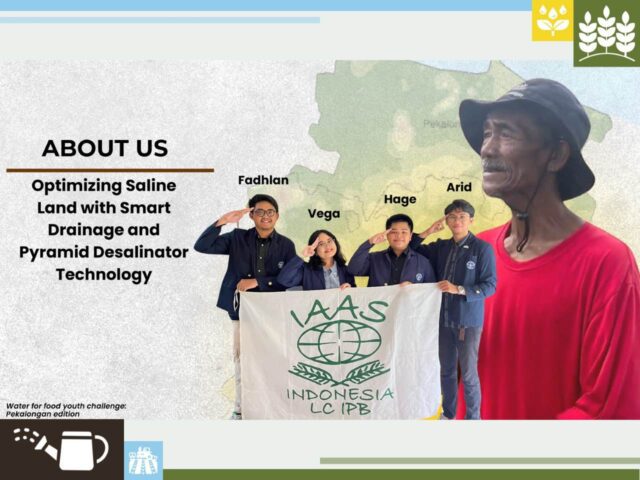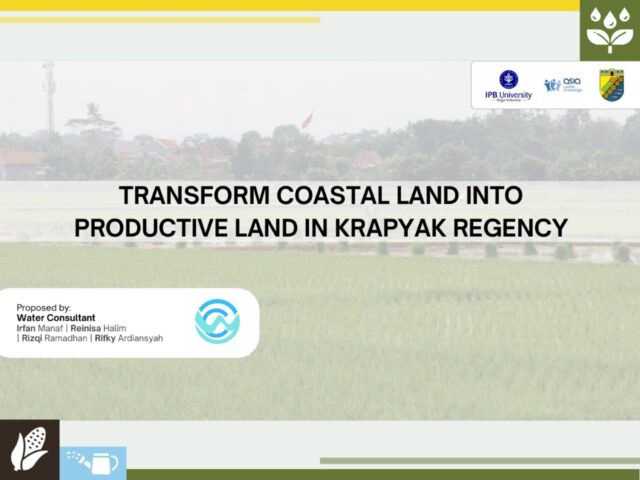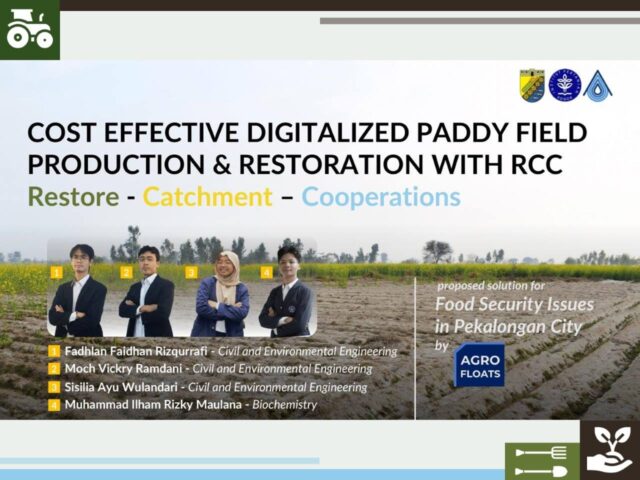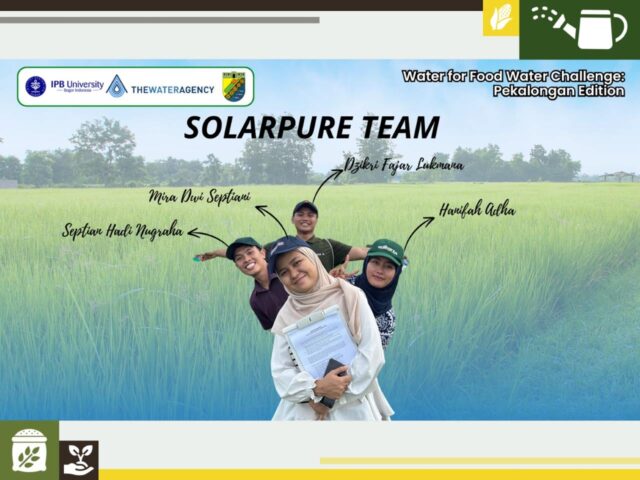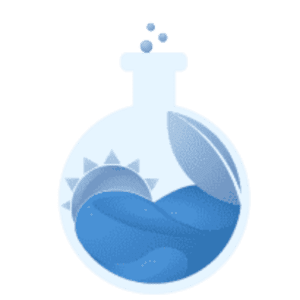Background
Tidal flooding in Pekalongan has caused major losses, with Wonokerto losing 758,407.65 kg of rice annually (IDR 10.99 billion) and Tirto 1,343,109.17 kg (IDR 19.48 billion). Saline soils, limited water sources, and high salinity (18 ppt) hinder productivity. During our field visit to Pekalongan City, we engaged with the local government and farmers to get a deeper view of the agricultural issues, which we summarised in our short video below.
Pekalongan City’s agricultural issues summary
Main Beneficiary
Our main beneficiaries are farmer groups in Krapyak Subdistrict, where our solution provides closer freshwater sources to increase crop productivity and encourages millennials to engage in agriculture.
Solution Proposal
To address the issue of seawater intrusion, we propose an integrated and innovative solution that also inspires millennial farmers to return to the agricultural sector.
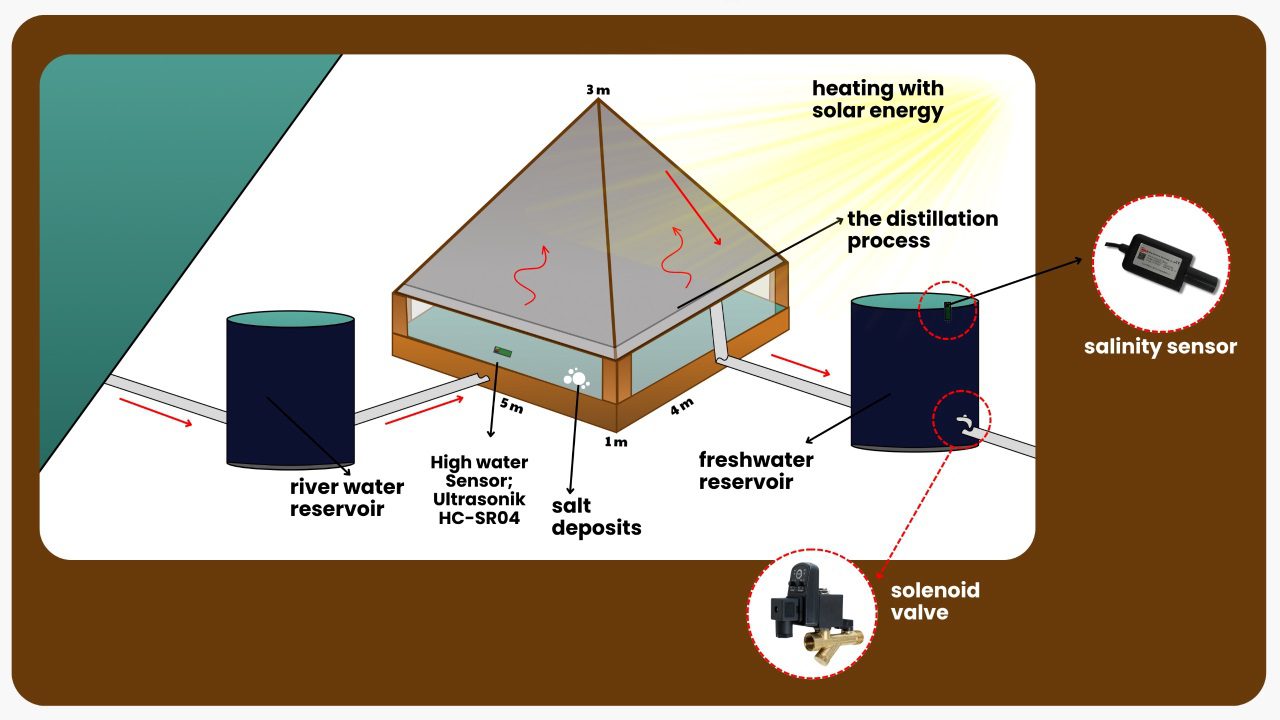
A Smart Drainage System will be implemented by utilizing the RK500-03 sensor to monitor soil and water salinity in real-time through electrical conductivity (EC) measurements. The collected data enables farmers to efficiently manage irrigation, reduce the impact of salinity on rice fields, and improve water usage. Pyramid Desalinator, which is our main solution, is a cost-effective solar-power distillation system. This system converts river or seawater into freshwater through heating and condensation and is equipped with a salinity sensor to ensure water quality. In addition, this system produces salt deposits that can be utilised as a new economic opportunity.
Impact
Our solution has multiple benefits for the community. Firstly, it creates job opportunities for salt farmers, rice mill producers, and millennial farmers, helping to address SDG number 1 on “No Poverty.” Secondly, it increases rice productivity significantly, potentially reaching 35 tons on 5 hectares, which addresses SDG number 2 on “Zero Hunger.” Thirdly, it helps to increase farmers’ income from Rp6 million to Rp245 million, marking a 3983% improvement and supporting SDG number 8. Additionally, our solution addresses the freshwater supply challenge, producing up to 51 liters of fresh water per day and processing around 10,000 liters of saline water daily, in line with SDG number 6. These impacts demonstrate how our solution improves agricultural output, economic management, and water resource management in the community.
See more details on our presentation slide below:

Team Profile
Fadhlan Muhammad Tsany, Resource and Environmental Economics, linkedin.com/in/fadhlantsany
Haridi Walid, Agribusiness, linkedin.com/in/haridiwalid
Muhammad Haikal Ghifar, Agronomy and Horticulture, linkedin.com/in/haikalghifar
Niho Vegaliany Agnesia, Civil and Environmental Engineering, linkedin.com/in/nihovegalianyagnesia

